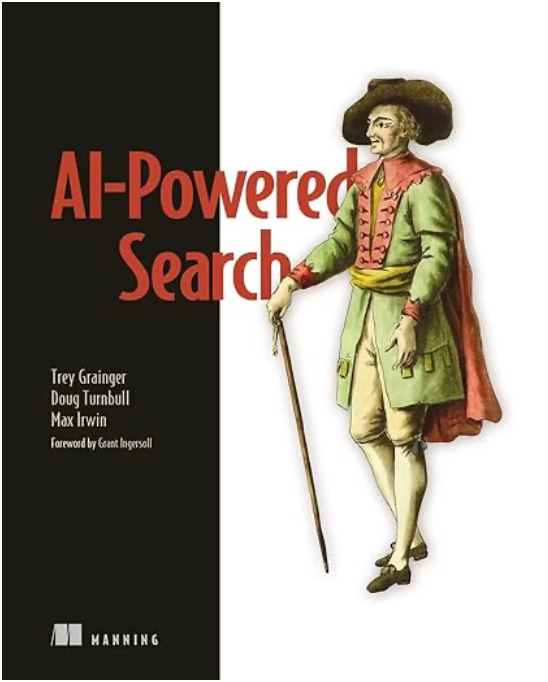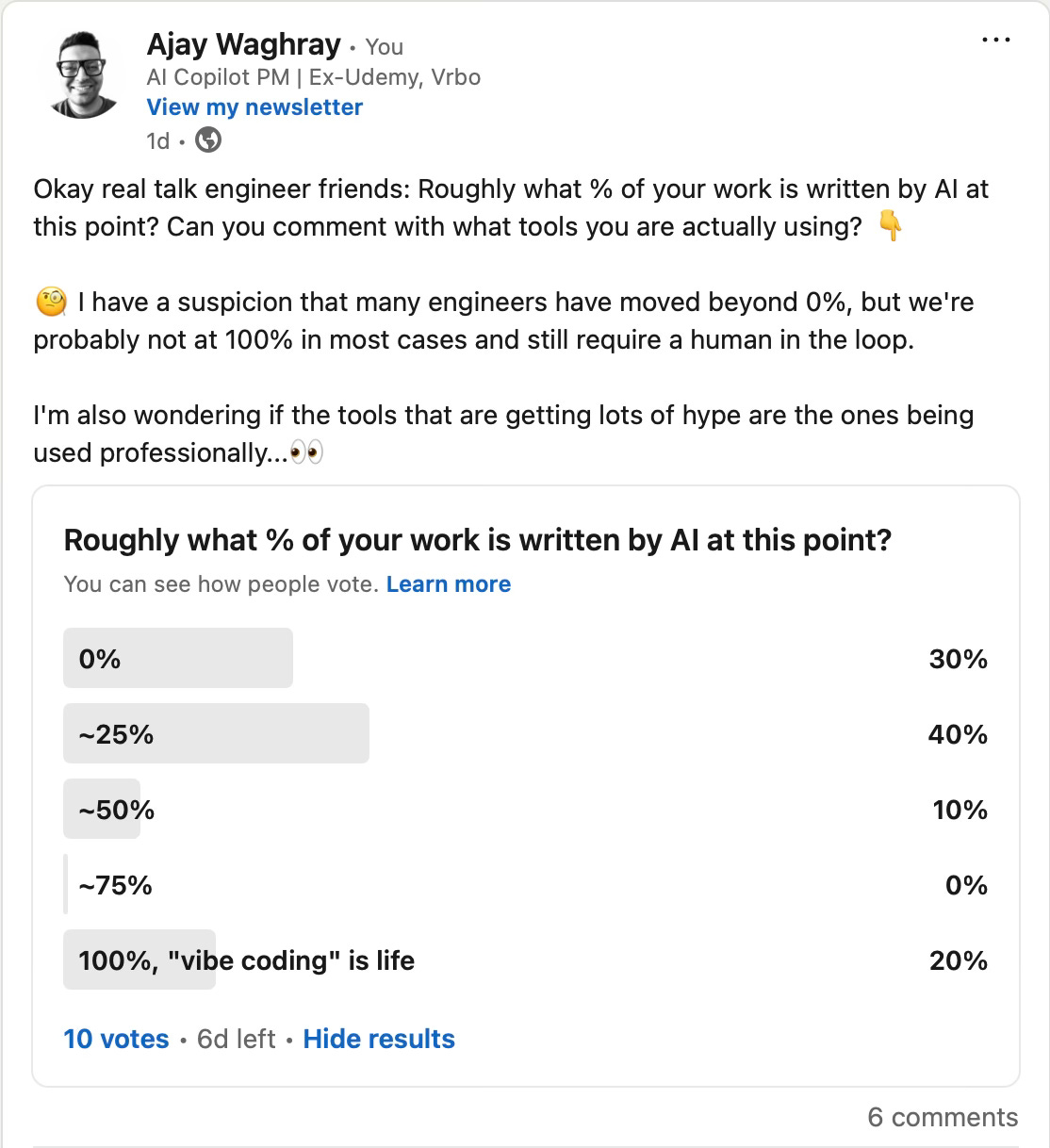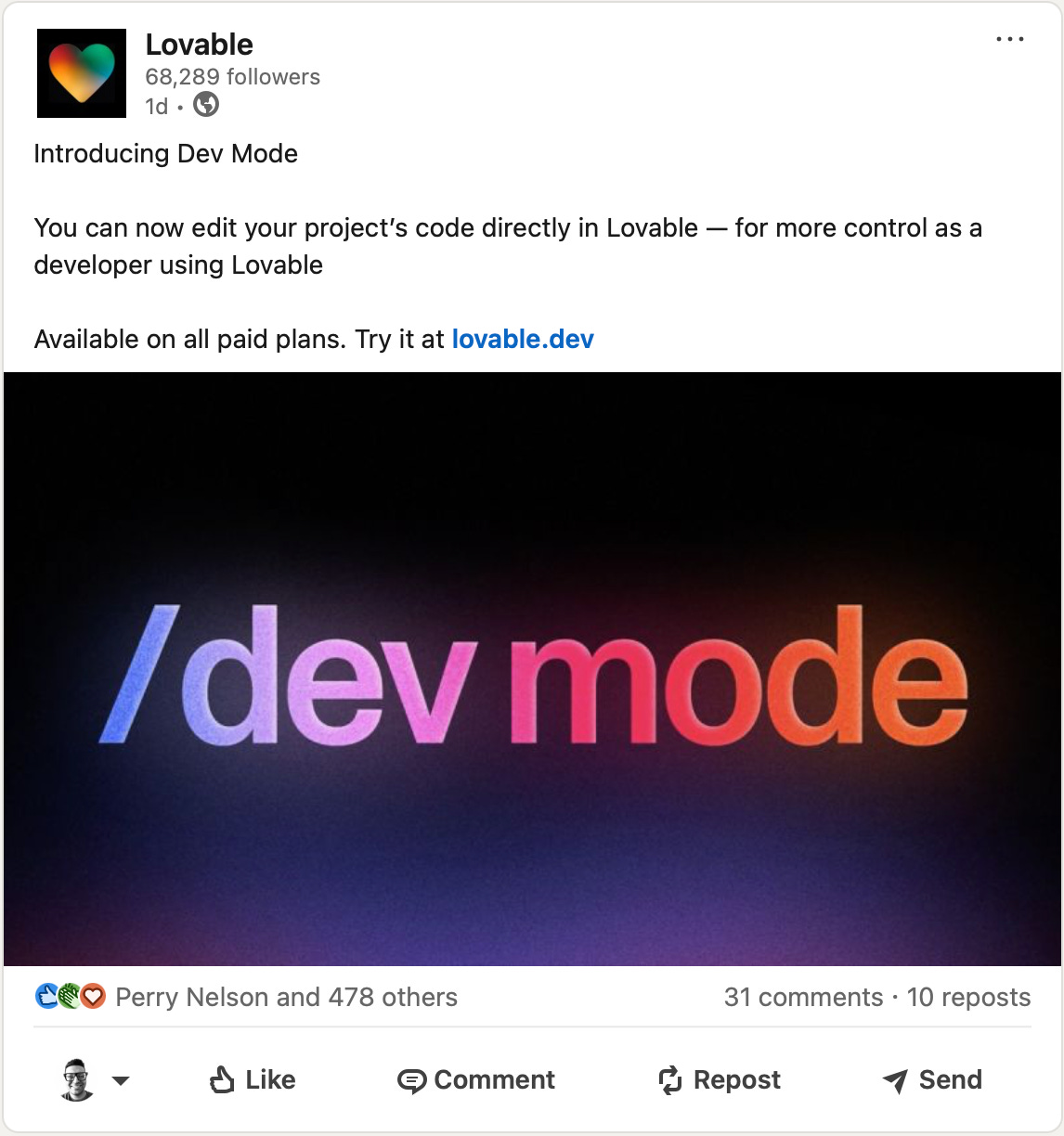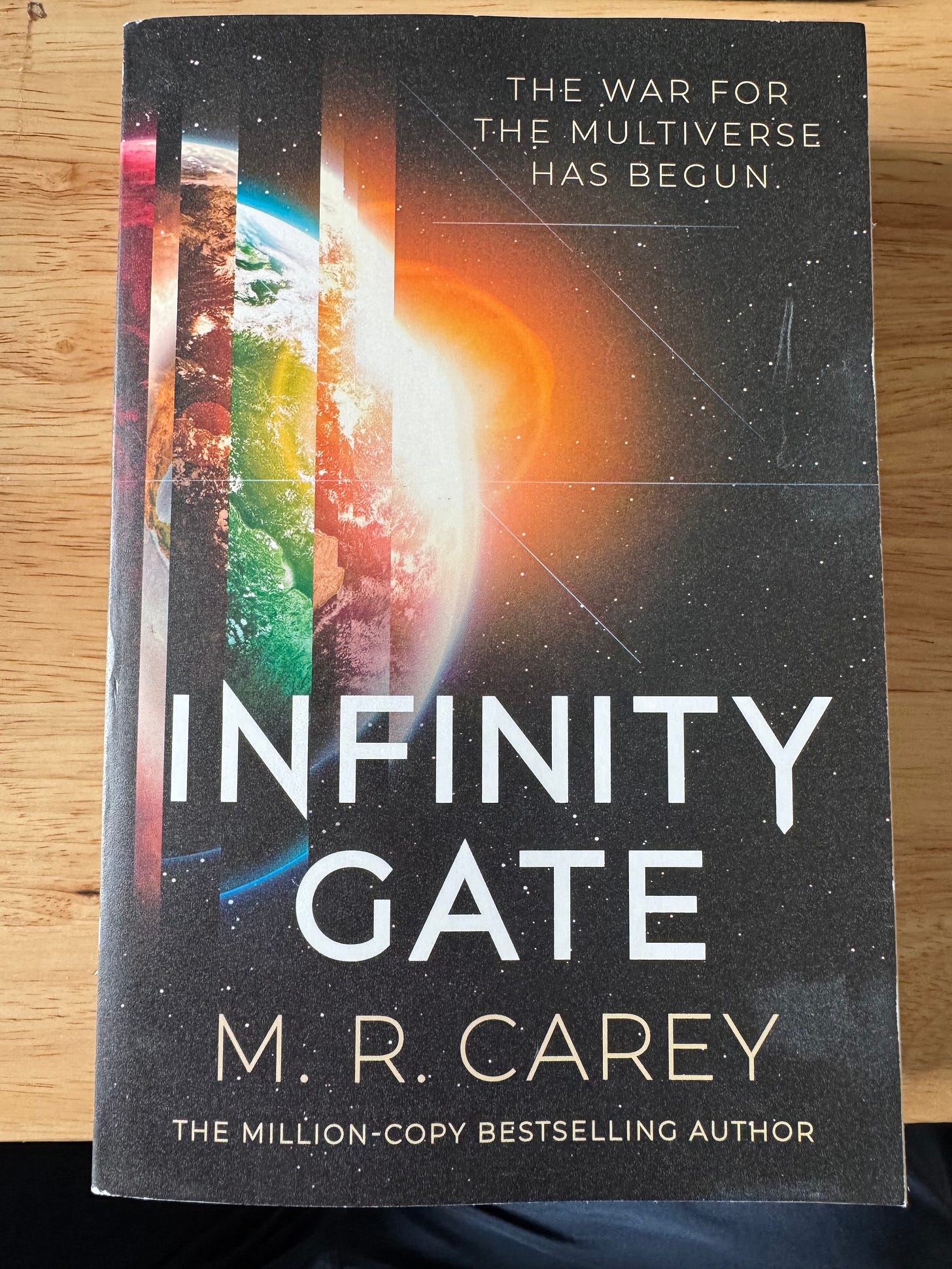Ship Happens, Week 14: Relaxation, AI Powered Search learnings, AI-drive development & recommended reading/YouTubing
Your weekly roundup of all things product management, technology and work life.
Happy Friday everyone! Welcome back to Ship Happens, your weekly product manager newsletter.
I'm using this newsletter to share at least three things l've come across this week to help you build better product. Subscribe so you don't miss these when they come out:
On to this week's thoughts and updates:
1. Heading back to work on Monday, I think I have a problem with relaxation…
I don’t know about y’all, but I think I have a relaxation problem. 😅 I’ve been not working for a few weeks now. I definitely feel more recharged and ready to go, but I can’t honestly say I 100% relaxed.
This morning, to help myself feel better (what is wrong with me?!) I made a list of all of the stuff I took care of during my time off. I’ll spare you the full list, but it had 22 ITEMS in it. 🤦🏻♂️ And somehow my brain was just like “wow you couldn’t have taken care of the remaining 20 things you wanted to do with your time off? you totally failed man.”
Even today, it’s KILLING ME that this newsletter didn’t go out at 6am this morning. Even though there’s no pressure! And hopefully you enjoy this material enough that it doesn’t really matter when it goes out. I still can’t relax about it.
I’m sure on some level this makes me good at what I do. But it also seems like it would be helpful for me to be able to just lay down and take a nap or something. 😴
Also it’s proof that you can’t completely trust the anxiety-generating machine that is your brain sometimes. Also big thanks to everyone that contributed to this stress thread on Linkedin! I’ve got some great ideas from this that I’m excited to try out as my full workload comes back the next few weeks. Looking forward to being back at work on Monday! 🎉
Let’s back away from my anxieties now and talk more about the future of search…
2. AI Powered Search learnings: AI changes the game in search
Our AI Product Book Club is in full swing this week (you can join here if you’re interested) and I am roughly 50 pages into our book AI Powered Search so far:
For this book I’ve been experimenting with the Blank Page method of taking notes from the folks that run The Knowledge Project. So I have actual notes I can refer to this time!
(A small tangent: I’ve been suspecting that just highlighting books and articles isn’t the way for me to learn anything from what I read. It turns out I was right 😅)
So here’s what I’ve taken away from this book to date:
LLMs have the capability to make search much more powerful, and users expect that. The advent of products like Perplexity with LLMs at their core have significantly increased user’s expectations from search. And it has made feeding signals, structured or unstructured, back into search to measure effectiveness to users more possible than ever. We’ll talk more about concrete examples in a second, but LLMs like ChatGPT can make previously near-impossible problems to solve more possible to resolve. One specific example they talk about in the book:
Unstructured data can now be represented more correctly as hyper-structured data that can be parsed, categorized and searched against with the use of an LLM. Previously, if you had a pile of documents that had no clear structure being followed, this would be considered unstructured data and ignored. An example of this is lecture notes that instructors would upload at Udemy, my previous workplace. Before, we had thought these documents were un-indexable and not usable for search. Especially if they were non-text docs like pictures or video. But now an LLM can parse these documents, structure their data in vector representations, and you can use vector similarity functions in search to search across them with a query. All of a sudden, something that would have taken quarters to do is significantly shrunk in scope with an LLM. Speaking of vector representations:
You can use the LLMs to create those vector embeddings at a large scale in a much shorter time frame. This is what I think it’s going to take me some time to process with LLMs, the fact that so much can be done much faster and at scale than was previously possible. Creating things like vector embeddings can be done much faster and at a large scale, making hyper-structured data available to search much sooner than multiple quarters. LLMs can make the vector embeddings much faster and process queries to find similarity much faster and more accurately than before, which makes search way more useful, faster.
The more traditional way of thinking about search & recommendations separately is disintegrating. Historically, I’ve seen the Search and Recommendations teams be separate within organizations. But with recommendations increasingly being needed within search, search algos driving recommendations, and LLMs becoming more and more central to them both, it’s making more and more sense that they are one team. Which has actually made sense to me for a while, but the book has crystallized that more.
So the short answer to the question “Will AI change the way search works forever?” is likely yes lol. So much that I personally had thought of as limitations to search being great are no longer limitations which is SO EXCITING.
If you want to learn more, join us in the book club! We’re just scratching the surface of AI Powered Search, and I’m always on the lookout for our next book to check out.
Let’s shift gears and talk about AI-driven development…
3. Using Lovable & Cursor has me wondering about the prevalence of AI-driven development & tools
I kicked off this poll on Linkedin yesterday:
The results are trickling in, but it does seem like development in partnership with an AI copilot is on the rise. There are still some people holding out as you can see with that 30% figure, but the majority seem to be using AI for some professional coding tasks. Which is not surprising given how powerful these tools are.
The leading product for professional use seems to be Cursor, although Lovable just came out with the capability to edit your projects with Lovable this week 👀
So we might be seeing more changes to the development tooling landscape over the next few months.
It also seems like it depends on the nature of work. One of my previous coworkers had this to say about it:
Likely depends on what you're working on; building CRUD web apps, likely close to ~75%.
It's easier for language models to help with common tasks, like building CRUD apps or standard data pipelines, because there's a lot of reference material out there, and the patterns are well-known. But if you're doing something more specialized, like building a mobile SDK in Rust that rewrites Android DEX files to create no/low-code APIs, they're less likely to be useful.
That said, I'm constantly surprised by how much better they're getting every day.
Have our AI overlords taken over professional software development then? Not yet. And the role of the professional engineer is likely not going way, at least anytime soon.
However, much of what we thought needed a professional to do is in fact going away though. The next few years should hold some exciting developments here (see what I did there?! #dadjokes)
You can follow the thread here if you’re curious. The next few things are mostly learning recommendations, so fire up your bookmarking app if you need to!
3. Recommended video: Andrej Karpathy’s YouTube channel
I have to say that Andrej Karpathy’s YouTube channel is excellent if you’re trying to dive deeper into the world of AI and LLM’s. I’m sure many folks have already gone deep here, but I just discovered it and it has become my go-to watch any time I have some free space to learn more about LLMs and AI.
The video I’ve linked to at the top is a great starting point. He’s a very engaging speaker and provides some great examples on how LLMs work, what their pitfalls are, and what to expect in the future. It’s 60 minutes 🤯 but don’t let that scare you! It’s a very engaging watch and flies by.
4. Growth newsletter recommendation: Elena’s Growth Scoop
If you’re not subscribed to Elena’s Growth Scoop already…what are you doing?! I’ve been a Growth nerd for sometime, even if you’re not in Growth per se there’s a lot of value in learning about it. Many product managers spend so much time focused on delivering core value, and then assume Marketing or someone else will drive growth. That is a mistake!!! True growth comes from creating value AND making sure users access, understand, leverage that value and tell others about it.
The edition above I found super useful about how best to measure churn and how to address it. Highly recommend her work if you’re building products you actually want people to use. 🤣
5. Recommended sci-fi fiction: Infinity Gate + Echo of Worlds
Okay last thing and I’ll let you go…
The Infinity Gate + Echo of Words series is pretty great if you’re into sci-fi, AI and all things tech. I just finished this last night (I read fiction before bed usually), it’s pretty fantastic. Based on the premise that people figure out how to traverse dimensions where there are infinite versions of Earth. Really imaginative, would give it a go!
That's it for this week!
If you've found this helpful, please consider showing your support by subscribing:
I’ll be back around this time next week with more useful product manager things!








Cursor is taking over for sure, and soon you will have to adapt your PRDs so that it can understand it.